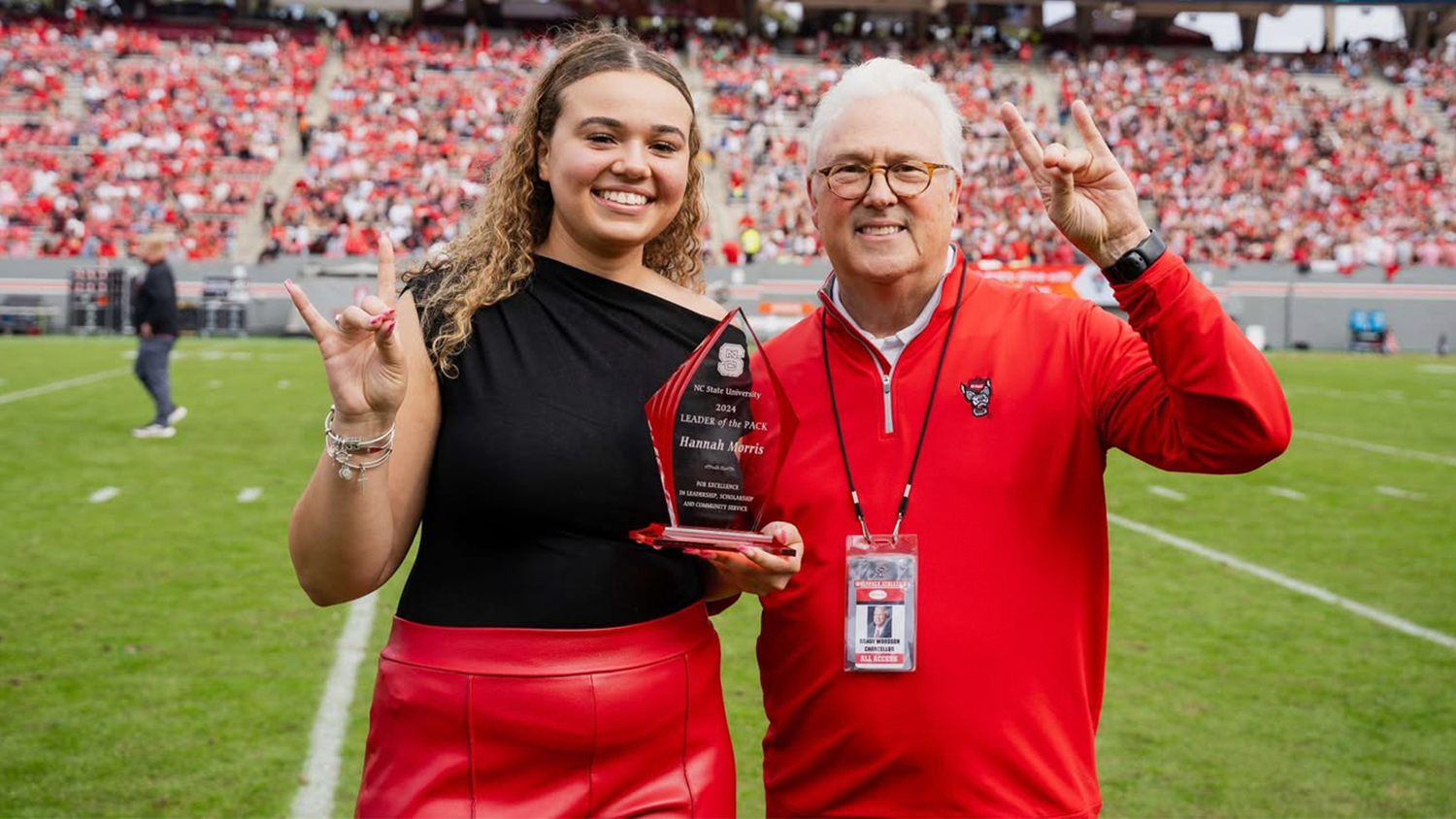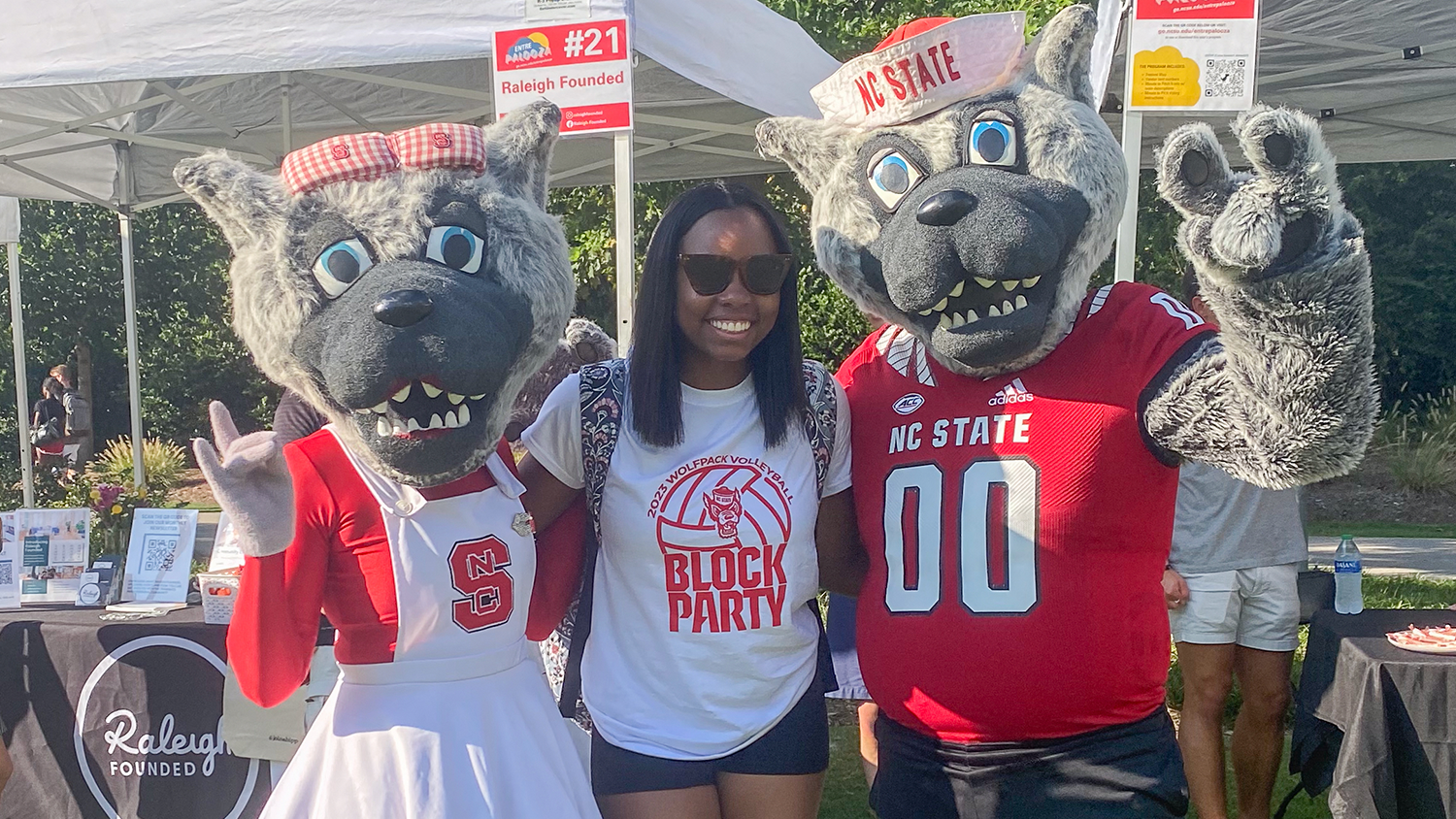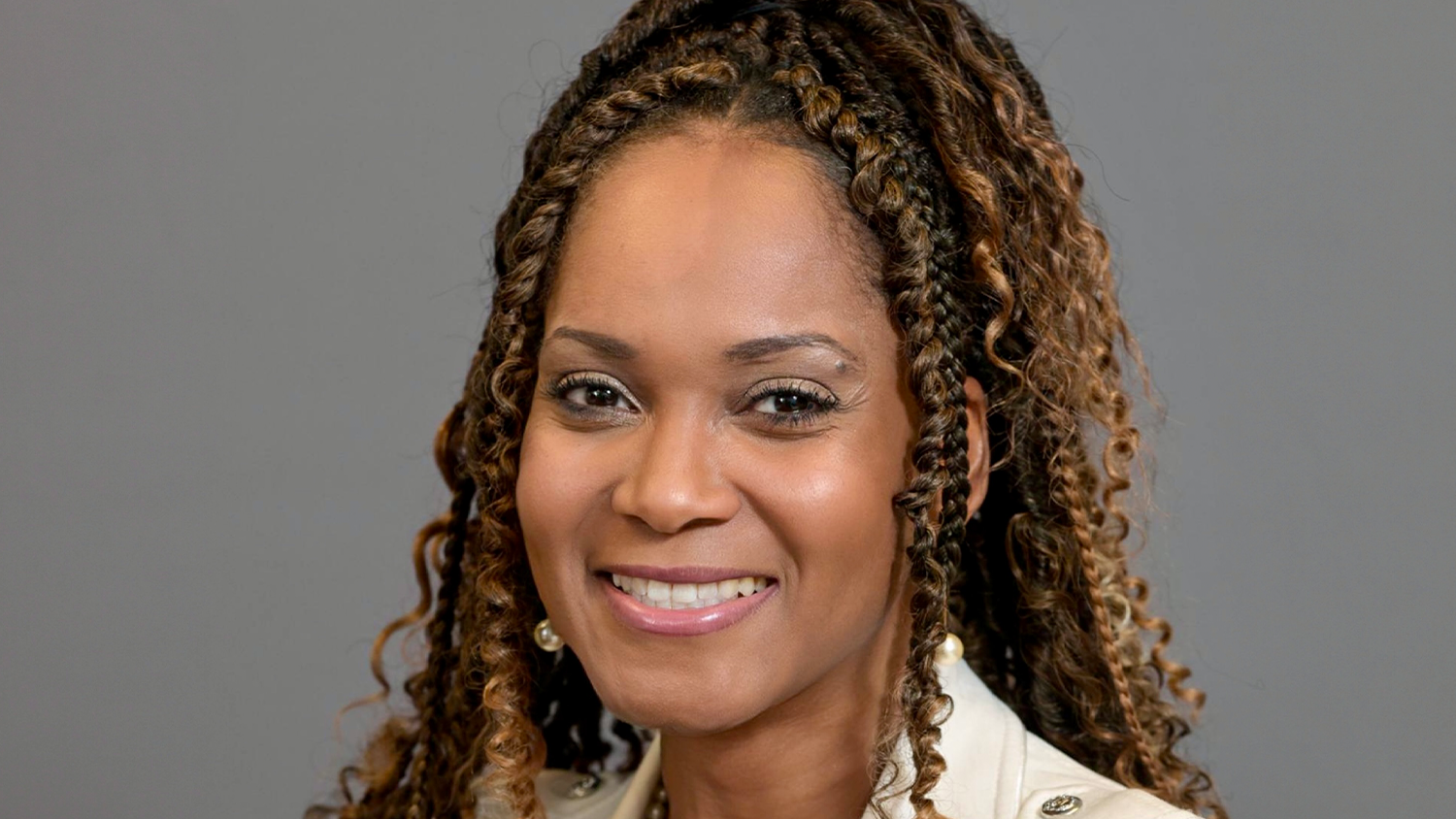Pam Huff ’22PHD: ‘I Would Like to Address the Importance of K-12 Science Education on the National Scene’

As a former research scientist and part-time educator, Pam Huff wanted to gain an academic perspective on the issues facing science education. Through the research study she completed for her dissertation, Huff engaged in interviews with science teachers, where she learned more about the struggles they face on a daily basis. Now, as she prepares to graduate, she is looking forward to finding ways to advance the field, as well as to increase the funding, resources and professional development opportunities available to science teachers.
Learn more about Pam Huff
Hometown: Anniston, Alabama
Degree: Ph.D. in Learning and Teaching in STEM: Science Education concentration
Activities (Research or Extracurricular):
My extracurricular activities are many, with a great deal of my time spent on community service projects.
They include the Rotary Club of Morrisville, where I am the community service chair. In this position I help find and coordinate community service projects in the Triangle area. Currently, we are serving two schools, one middle school and one elementary school. For the middle school, we sponsored an all-staff appreciation luncheon where Rotary members provided food, beverages and appreciation to staff members of the school. In the elementary school, our club members provide cans of ravioli to supplement the school’s “back-pack buddy’ program that provides weekend food for students in need.
I am also in the process of writing a grant for after-school STEM and summer camp activities for the elementary school students in partnership with a non-profit organization, Dream Academy.
Currently, another educator and I are assisting a teacher in the juvenile correctional facility in Edgecombe County. Here we are providing her with moral support as well as instructional materials and teaching strategies that help serve her student population. These teachers struggle and are in great need of support.
I also work part time for the YMCA in Garner where I am “The Science Lady”. Here, I explore science topics with children ranging in age from 3-14 on a weekly basis. I volunteer with the town of Cary in their Sister Cities program. This program was initiated by President Dwight D. Eisenhower after World War II in hopes of spreading good will around the world through direct city-to city-interactions. Currently, Cary has five sister cities.
I also do strength training twice a week and I play tennis as often as I can. I am currently learning to play the ukulele, to add to the violin, cello and piano.
Why did you choose the NC State College of Education?
I chose the NC State College of Education after a very extensive search of Ph.D. science education programs. I visited many open houses during a one-year time frame, and each time I visited NC State, I was greeted warmly and my questions were answered thoroughly. I also talked at great length with my soon-to-be advisor, [Alumni Distinguished Professor of Science Education] Gail Jones about the critical nature of science education in K-12 schools. I was impressed by the quality of the teaching staff and students in the program, the flexibility in coursework and the positions that the students have filled after completion. The Department of STEM Education at the NC State College of Education offered exactly what I was seeking.
Why did you choose your concentration?
I chose science education as a concentration because I was concerned about the direction of K-12 science education in the United States, especially compared to the rest of the world. As a former research scientist and part-time educator, I wanted to understand the issues from an academic perspective, so that I might join in the solution to some of our problems and add to the conversation through research studies.
What’s your next step? What do you have planned after graduation?
My current plan is to remain with the YMCA on a part-time basis while I explore other opportunities. My goal is to find a position where I can put my skills and knowledge to the best use – wherever that may be. An advantage of being an older graduate is that I have the flexibility of looking broadly and taking time to find the right fit.
What do you hope to accomplish in your field?
I would like to address the importance of K-12 science education on the national scene with the hopes of funding science education at a level similar to what was seen in the 1960s post-Sputnik era. I hope to advance the issues of science education and the need for additional funding at the state and local areas for all schools, especially the rural schools. This would include more resources for professional development opportunities for science teachers, equipment and facility money and field trip opportunities for students.
Do you have a favorite memory from your time in the College of Education?
The memories I have during my time in the College of Education can hardly be summarized by “a favorite” because, during my entire tenure, there was one favorite event after another.
I had the opportunity to work as a research assistant with my advisor and another grad student at PowerAmerica on NC State’s Centennial Campus. There, I learned about wide-bandgap semiconductor technology, engaged with the students and professors in the Department of Electrical and Computer Engineering and heard a Nobel laureate speak to the student body about his efforts, over many long years, to develop LED technology.
I had the good fortune to visit nanotechnology labs on the Centennial Campus with my advisor and her team during NanoDays, an event that coincided with the Science Olympiad and encouraged high school students from around the state to participate. The students and teachers were so appreciative and excited to learn from the scientists doing cutting edge research.
I participated in research projects with intelligent, education-passionate colleagues, and from those research projects had the privilege of engaging with students, teachers and educators from around North Carolina. I had the opportunity to present research papers, posters and talks while attending conferences at state, national and international meetings, where I conversed with internationally known educational researchers.
I greatly enjoyed traveling abroad to Finland and Estonia, where we collaborated with K-12 teachers in local schools, as well as researchers and professionals in the university system. We even visited the United States Embassy in Estonia!
I had the opportunity to work with professors at the College of Education as a teaching assistant and I had the privilege of promoting and advertising the programs offered in the Department of STEM Education around the state.
Most memorable of all were the friendships I have formed with professors, staff, graduate students and teachers. These friendships will serve as the basis for many collaborations in the future!
Tell us about an experience you had with the College of Education that had the biggest impact on you or your career.
The most impactful experience I had with the College of Education that will influence my career is working with teachers during my dissertation research study. During those long, sometimes emotional interviews with teachers, I learned so much about the struggles that our science teachers face on a daily basis. Whatever I pursue next in the K-12 science education arena, I will carry with me the voices of those teachers and their joys and struggles.
What are your research interests? What inspired those interests?
My research interests include science programs in K-12 schools, with a focus on charter schools, which was inspired through working and volunteering in my children’s schools. Charter schools are of particular interest because of their unique structure, their proliferation and their ability to focus on the needs of the individual, a quality that allowed my challenged son to progress to the successful young man he is today.
Why did you choose education?
I chose education because it is the core of our societal survival. Education is what lifts us as a society as it guides us to rational thought and inclusiveness, allowing us to see via different perspectives new possibilities for the future.
- Categories:


